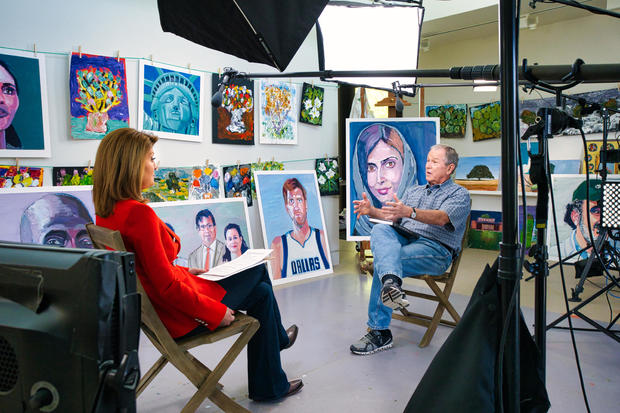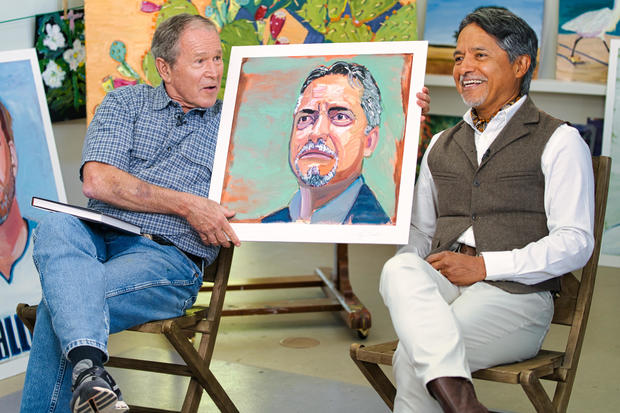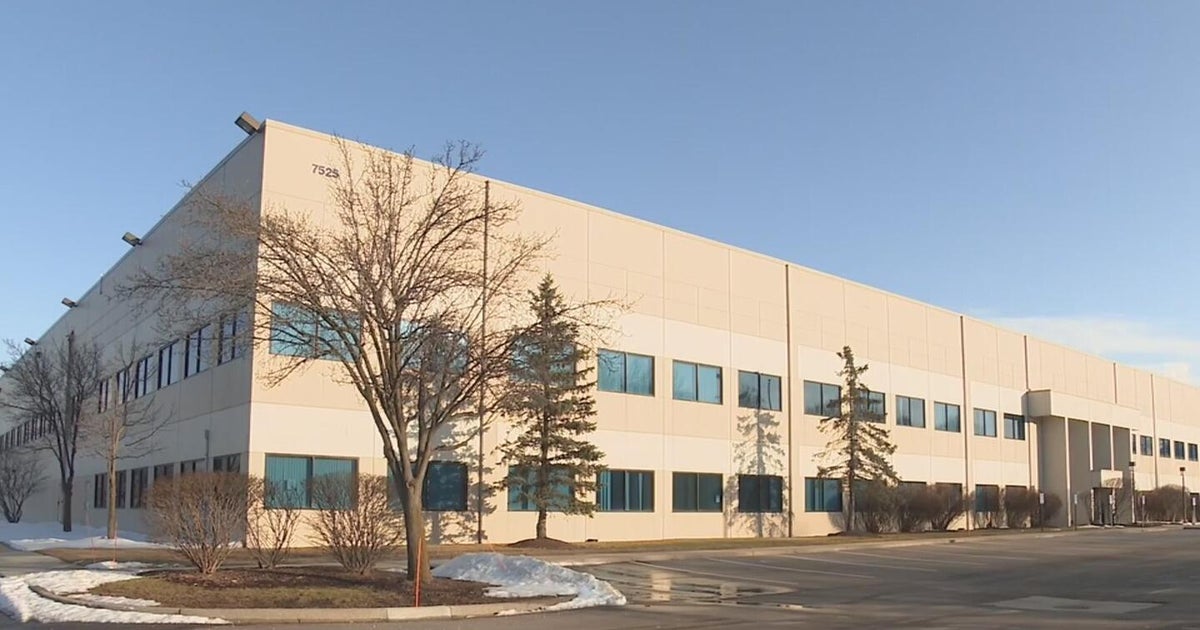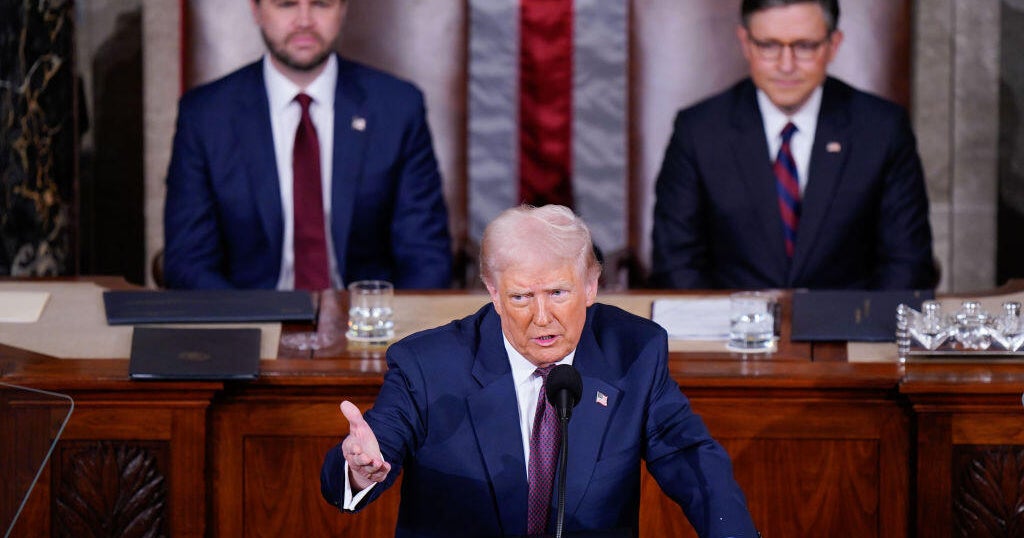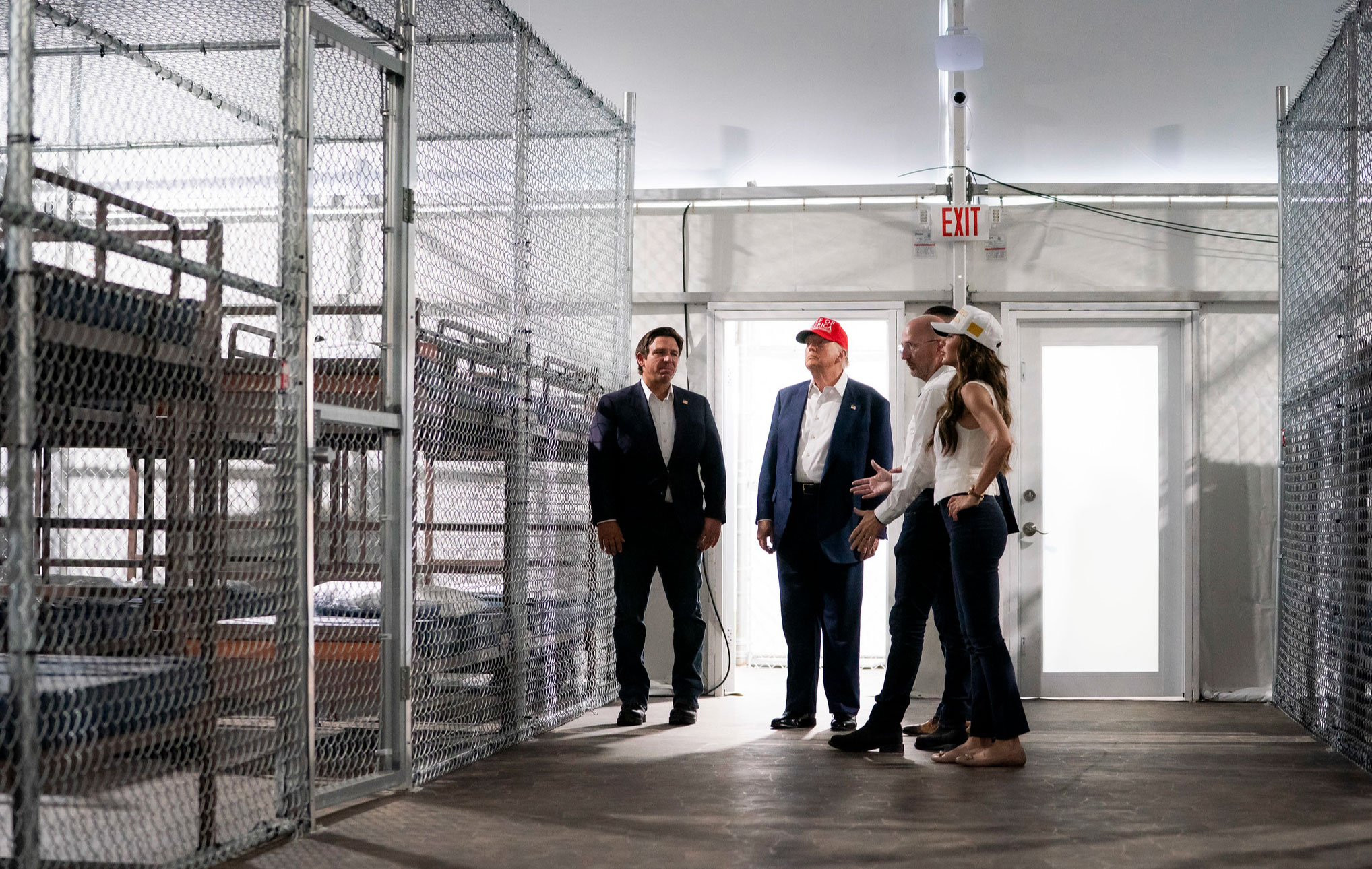George W. Bush calls country "divided" under Trump and pushes immigration reform
Former President George W. Bush, who has mostly stayed on the political sidelines after the White House, has reemerged with criticism of his Republican successor as he advocates for a sharply different immigration policy from former President Donald Trump.
"The problem with the immigration debate is that it, one, can create a lot of fear. 'They're coming after you,'" Mr. Bush said during a recent interview with CBS News at his 1,600-acre ranch in Crawford, Texas.
Mr. Bush, whose book of paintings "Out of Many, One: Portraits of America's Immigrants," is being published by Crown, hopes his voice can make the debate less fearful after four years of Mr. Trump's policies. Proceeds from his book are going to charities that help immigrants resettle.
"The country was very divided during that period of time. And, you know, as a result, he wasn't reelected," Mr. Bush said of Mr. Trump.
Though he accused Mr. Trump of dividing the country, Mr. Bush would not go as far as assigning blame for the January 6 riot at the U.S. Capitol, which he called a "terrible moment in our history."
"That made me sick. I couldn't believe it. Neither could you. Most Americans are sitting there going, 'What the hell is going on?'" Mr. Bush said. "Trying to guess the motivations of riled-up people — history is going to assess the blame when time goes on."
More than two decades ago, Mr. Bush ran as a compassionate conservative who wanted to pass comprehensive immigration reform. His failure to do so, he said, is one of his greatest regrets and part of the reason he's rejoining the debate.
It was Ken Mehlman, his former campaign manager, who urged him about four years ago to speak out about immigration reform, Mr. Bush said.
"I said, 'I don't want to put my voice in the immigration debate. I'm a quiet guy. I've done my deal. I'm not going to criticize my successors.' He said, 'Why don't you paint the portraits of immigrants?' And I said, 'Wow, that's a good idea' — And started. And I'm now involved in the immigration discussion," Mr. Bush said.
The last president to sign an immigration reform bill was President Ronald Reagan in 1986, essentially granting amnesty to 2.7 million undocumented immigrants. Mr. Bush said he doesn't believe providing immediate amnesty to migrants "would work in this day and age," but he supports a pathway to citizenship.
"I do, however, believe people who have been here, who [followed] the law and paid their taxes oughtta be given a chance … a pathway to citizenship," he said. "If they pay their taxes and prove to be good citizens. And stay out of jail. But don't jump ahead of those who have been here, living with the rules."
Mr. Bush said he would lobby the Republican Party to support it, if that is President Joe Biden's proposal.
"Whether my own party listens to me or not is another question," he said.
Mr. Bush also said he disagrees with the argument that immigrants take away jobs from U.S. citizens.
"I think it helps grow the number of jobs available. And there are a lot of jobs that aren't being fulfilled now. You come here to Dallas in August and not a lot of people are volunteering to put tile on roofs," he said.
The former president employs eight immigrants who work on his 90-acre tree farm. They are in the U.S. on work visas, he said.
"They're incredibly good workers. But more importantly is, they're here to support their families. And they send money back home," Mr. Bush said, adding that he thinks the current system for work visas should be expanded.
"The problem with the visa program, is that they have to apply for readmission every year. And as a result, as a small business owner, we don't know whether the labor force that has been trained to work the tree farm will come back. And that needs to be fixed," he said.
On the cover of Mr. Bush's book of portraits is Carlos Rovelo, who came to the U.S. because of a civil war in El Salvador. If he had stayed there, said Rovelo, now a father of four, he doesn't think he would be alive. His father was tortured, his family was forced to pay a ransom for his father's release and his grandmother witnessed the assassination of an archbishop near their home.
He became a U.S. citizen in 1987 and now is a professor at a community college, teaching federal and Texas government, Mexican-American studies and art history.
"Only in America. And that's what this country's all about. Never say never," Rovelo said of being on the cover.
Mr. Bush, who met Rovelo through his art instructor, hopes that by sharing Rovelo's story and others, the tone of the immigration debate will change.
"Now, that's the thing that pisses me off about this debate. I really don't want to get involved in politics. But you know, the tone of the debate just was so disrespectful to people like Carlos," he said. "Dream big dreams and work hard."

